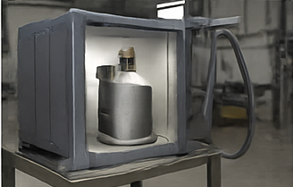NEWS
Primary Lead (Quality Control) Order, 2025
A Comprehensive Overview
The Primary Lead (Quality Control) Order, 2025, issued by the Ministry of Mines, marks a major milestone in India’s ongoing efforts to enforce stringent quality norms for industrial raw materials. Officially notified on April 17, 2025, the Order is a direct exercise of powers conferred under the Bureau of Indian Standards (BIS) Act, 2016—a landmark legislation designed to uphold product quality and safety across all sectors. This QCO (Quality Control Order) introduces a legally binding mandate requiring all primary lead manufactured or imported for the Indian market to conform to the Indian Standard IS 27:2023, and to bear the BIS Standard Mark, thereby affirming its compliance with national specifications.
This initiative stems from an urgent need to ensure that industrial base materials such as lead—critical to several high-risk applications—meet rigorous purity, safety, and performance benchmarks. In recent years, growing concerns about the influx of substandard or impure metal products have prompted the government to step up regulation and monitoring, especially in industries where public health and infrastructure depend on the integrity of input materials.
Primary lead refers to newly refined lead obtained from smelting natural ore, as opposed to secondary or recycled lead. It is considered the highest grade of lead, offering superior chemical purity and consistency. Because of these qualities, the primary lead plays an indispensable role in a wide range of essential and safety-sensitive industries. It is a key component in the production of lead-acid batteries—which power everything from automobiles and backup power systems to solar storage devices. It is also used extensively in radiation shielding equipment for medical diagnostics and nuclear protection, as well as in cable sheathing, construction, and ammunition manufacturing.
Despite its utility, lead is also a toxic heavy metal with well-documented health and environmental risks. Exposure to unregulated or low-purity lead products can result in severe health complications such as neurological damage, organ failure, and developmental disorders, particularly in children and vulnerable populations. Improper handling and distribution of such materials also pose environmental hazards, including soil and water contamination.
Recognizing these threats, the government has implemented this QCO not only to eliminate health and environmental risks but also to raise the overall quality bar for domestic manufacturing. The regulation also supports India’s broader industrial and economic goals, including “Make in India” and “Atmanirbhar Bharat”, by ensuring that materials used in production meet world-class standards. Furthermore, compliance with BIS norms is expected to enhance India’s reputation as a supplier of quality-assured goods, opening up greater opportunities for global trade.
By standardizing the quality of primary lead and enforcing certification at the national level, this Order is poised to create a safer, more reliable, and globally competitive industrial ecosystem. It sends a clear message that quality, safety, and compliance are non-negotiable pillars of India’s growth trajectory in the manufacturing and heavy metals sector.




Key Highlights
– Mandatory BIS Marking: Every unit of primary lead must bear the Indian Standard Mark, signifying conformity to IS 27:2023.
– Enforcement by Law: Compliance is compulsory and enforceable under BIS Conformity Assessment Scheme–1, Schedule–II of 2018.
– BIS as the Designated Authority: BIS will supervise licensing, inspections, testing, and compliance monitoring across India.
Products Covered
This order strictly covers primary lead, which is obtained from ore or primary metal sources, not from recycling processes. It ensures that all such material used in manufacturing or industrial processes meets the minimum purity levels and safety standards.
– Applicable Indian Standard: IS 27:2023
– Title: Primary Lead – Specification
This standard outlines the acceptable chemical composition, test methods, and product specifications for high-quality primary lead.
Exemptions Provided
– Export-Only Goods: Primary lead manufactured exclusively for export is exempt from this QCO.
– No Exemptions for Domestic Use: All domestically used products must be certified, including those used by micro and small enterprises or for R&D purposes.
Timeline for Implementation
– Notification Date: April 17, 2025
– Effective Date: October 17, 2025 (six months after publication)
Post this date, only certified and marked primary lead can be sold, imported, or distributed within India. This timeline provides industries with sufficient preparation time to apply for and obtain BIS certification.
Next Steps for Manufacturers and Importers
- **Apply for BIS Certification**: Submit an official application including technical details and company credentials.
- **Factory Evaluation**: BIS will conduct a detailed audit of the production facility to ensure compliance with IS 27:2023.
- **Product Testing**: Sample products must be tested in a BIS-accredited laboratory to confirm adherence to required specifications.
- **Foreign Manufacturer Advisory**: International suppliers should apply well in advance due to additional procedural requirements like overseas inspections and logistics.
Conclusion
The Primary Lead (Quality Control) Order, 2025 is a significant initiative to upgrade industrial safety, material consistency, and consumer protection in India. By setting a high benchmark for product quality, it supports both public health and the integrity of industrial applications.
For manufacturers and importers, compliance is not only a legal necessity but also an opportunity to showcase their commitment to global quality standards. Early adoption and certification will ensure smooth business operations and strengthen brand reputation in the market.

